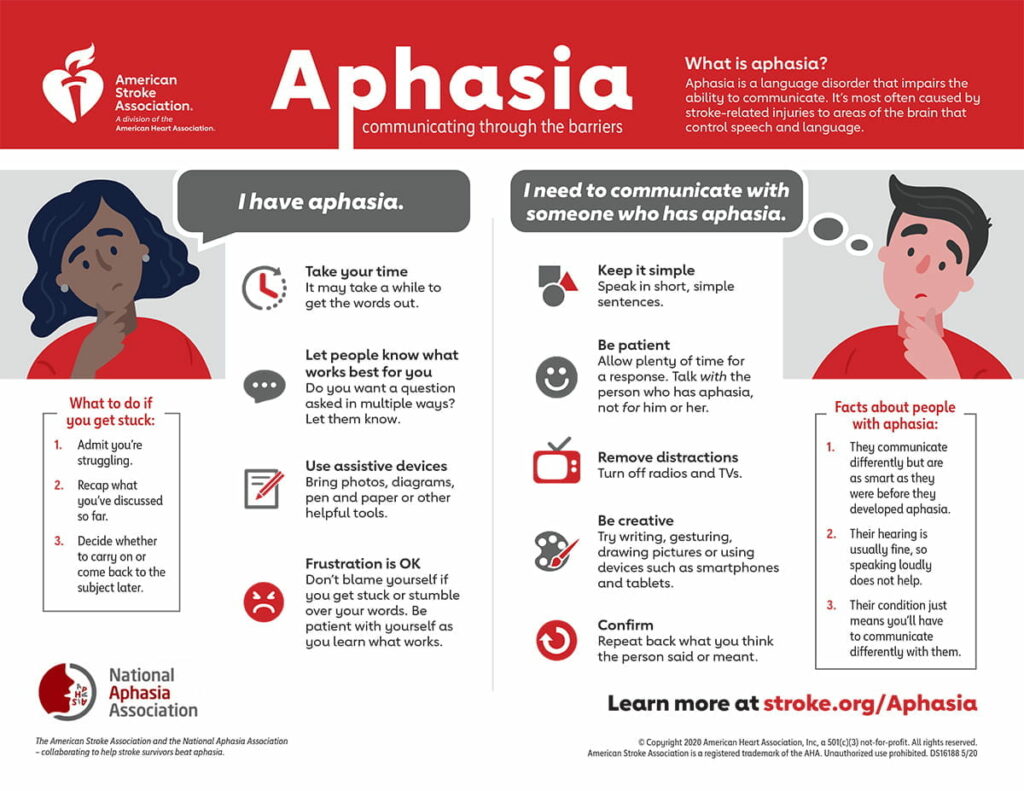The bad news: There is no cure for Aphasia
The good news: Speech and Language Therapy can help.
What is Aphasia?
Aphasia is a disorder that results from damage to portions of the brain that are responsible for language. The disorder impairs the expression and understanding of language, as well as reading and writing.

Most people who have aphasia are middle-aged or older, but anyone can acquire it, including young children. About 1 million people in the United States currently have aphasia, and nearly 180,000 Americans acquire it each year, according to the National Aphasia Association.
The disorder was recently in the spotlight due to the diagnosis of actor Bruce Willis. As a result, he is retiring at a time most would consider early from his career. For most people, words come out all jumbled. It is described as a frustrating disorder because often people can comprehend what someone is telling them, just not be able to coherently reply.
The disorder affects kids too. There are not a lot of symptoms to look for though. Often infants with Aphasia don’t babble as much as their same-age peers. Only short sentences are used by these patients, with words often left out, making the sentence sound incomplete. Some children suffering from the disorder might have trouble repeating words even though they don’t have problem understanding what others are saying. Some seem not to be listening, or seem forgetful.
As seen in the image above, there are many things you can do too when you are communicating with someone who has Aphasia. Simple things like talking slower or using fewer words will help. Remember, they are smart! Remember, they are not deaf! And remember, speech therapy can help!

